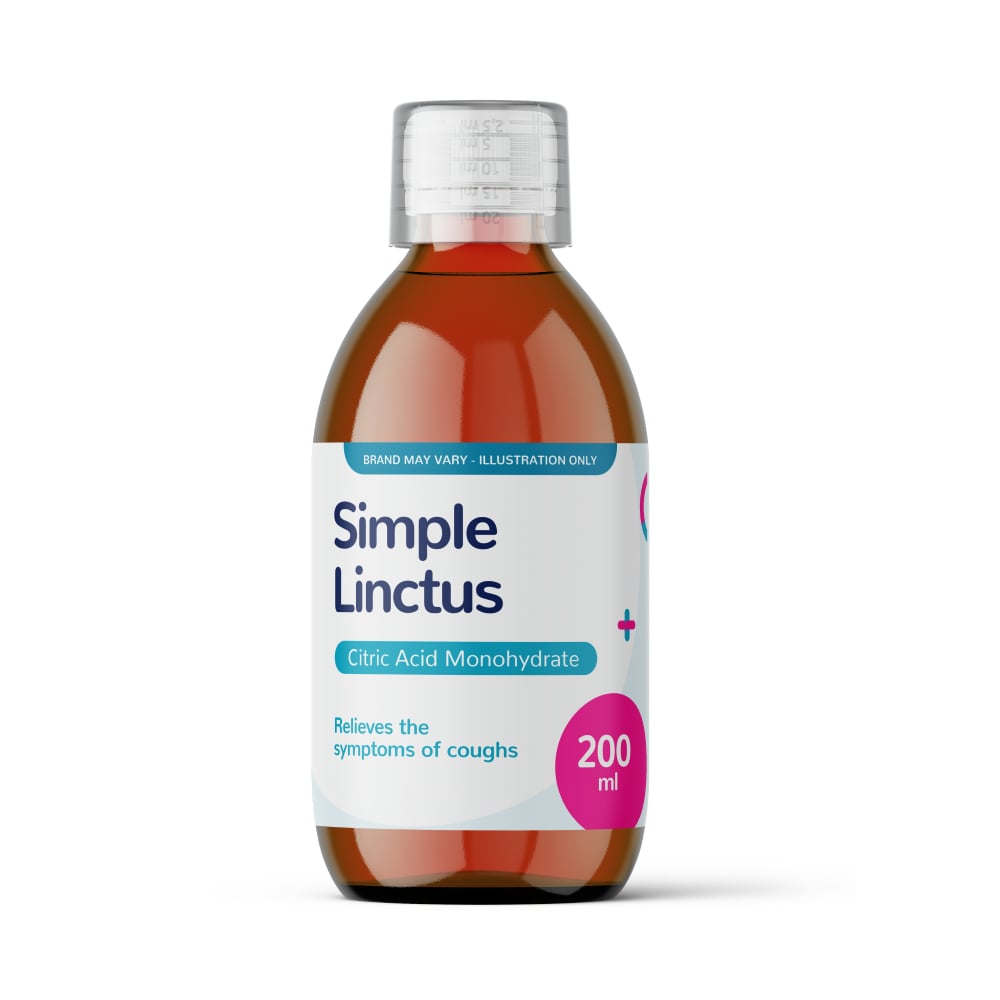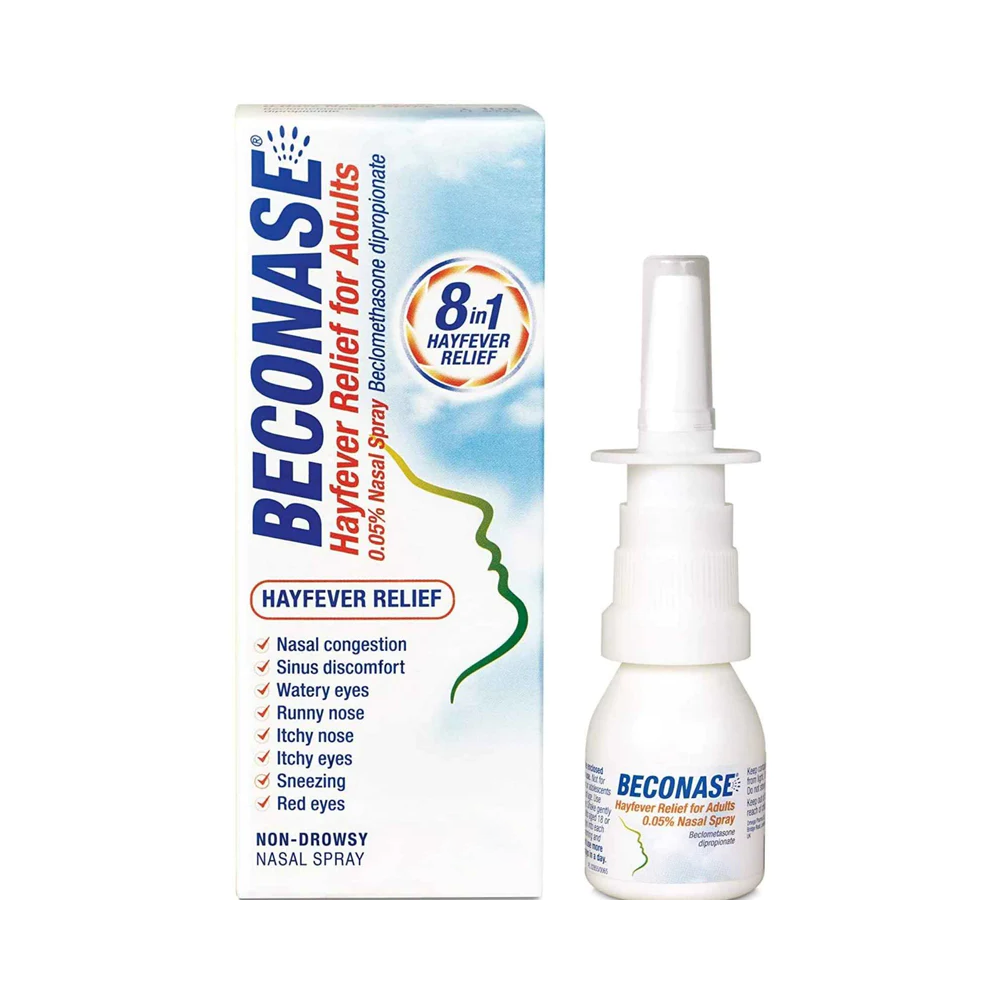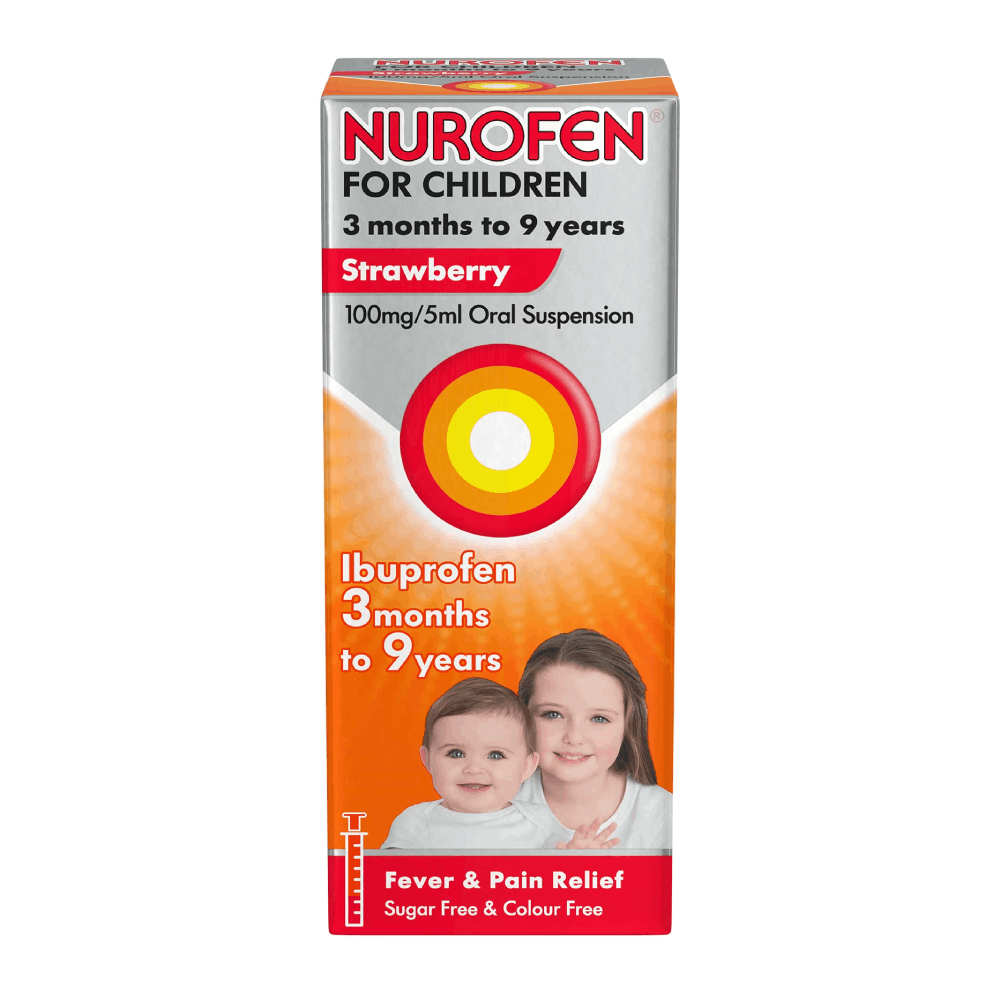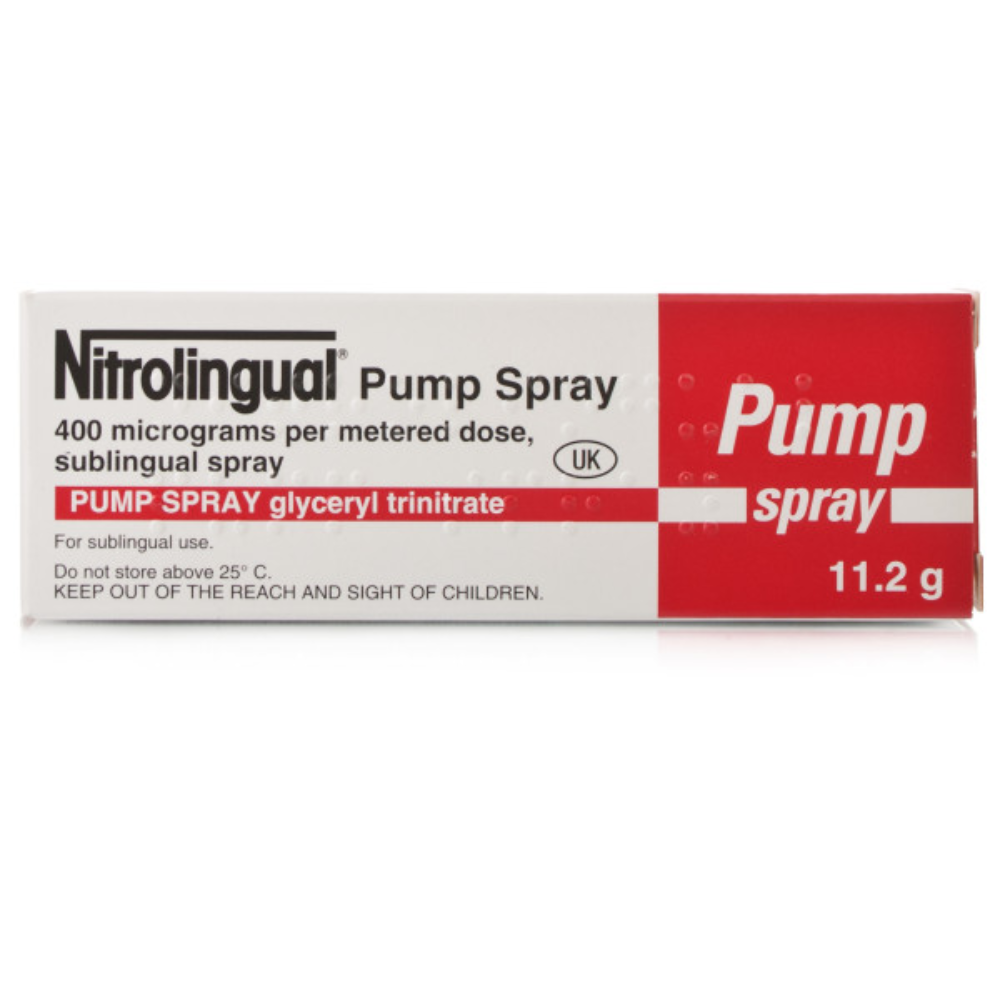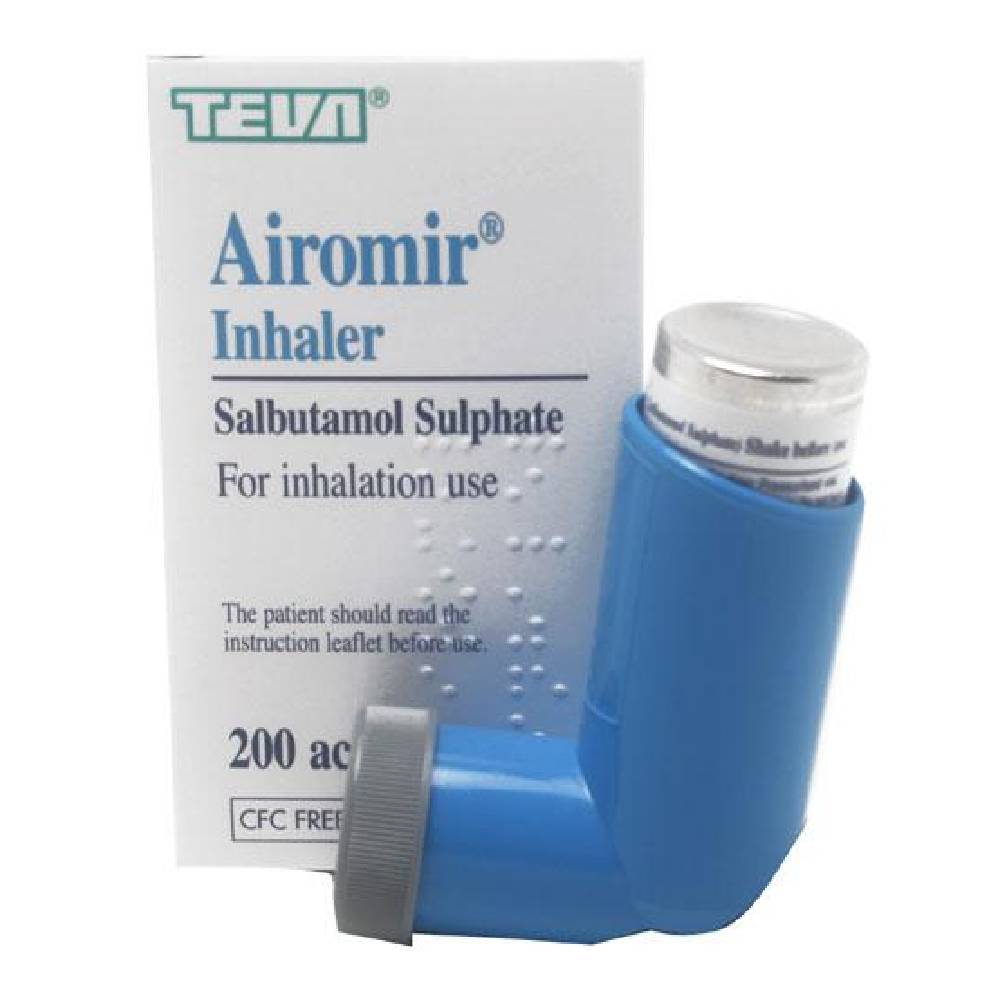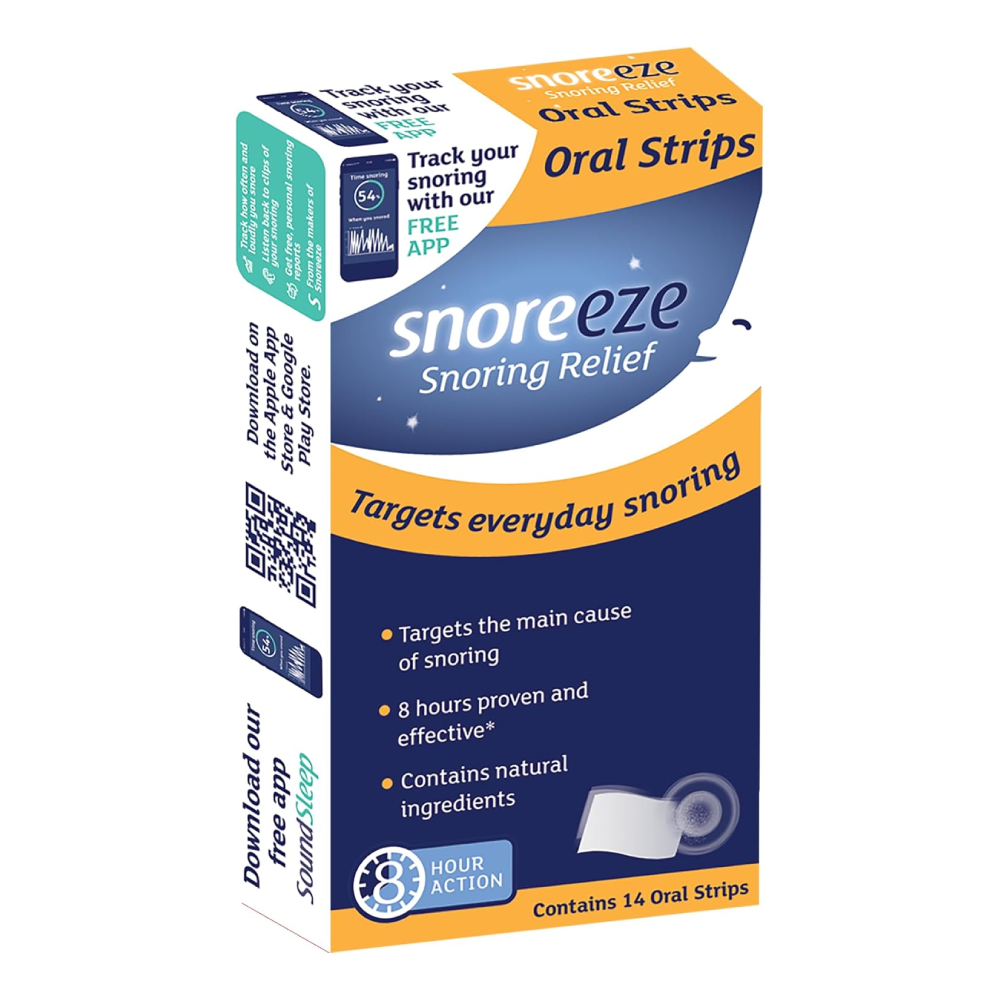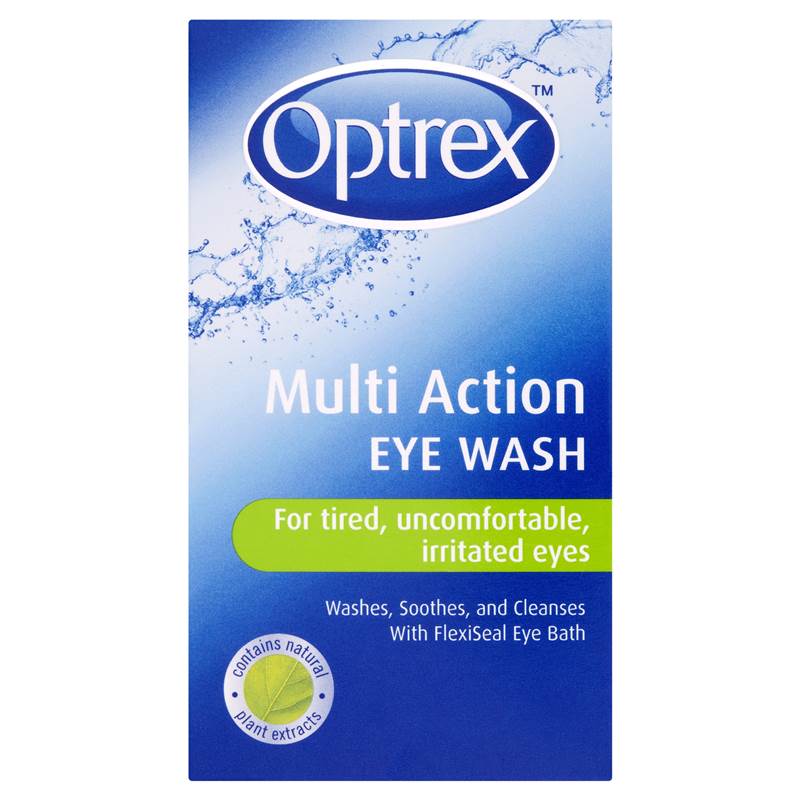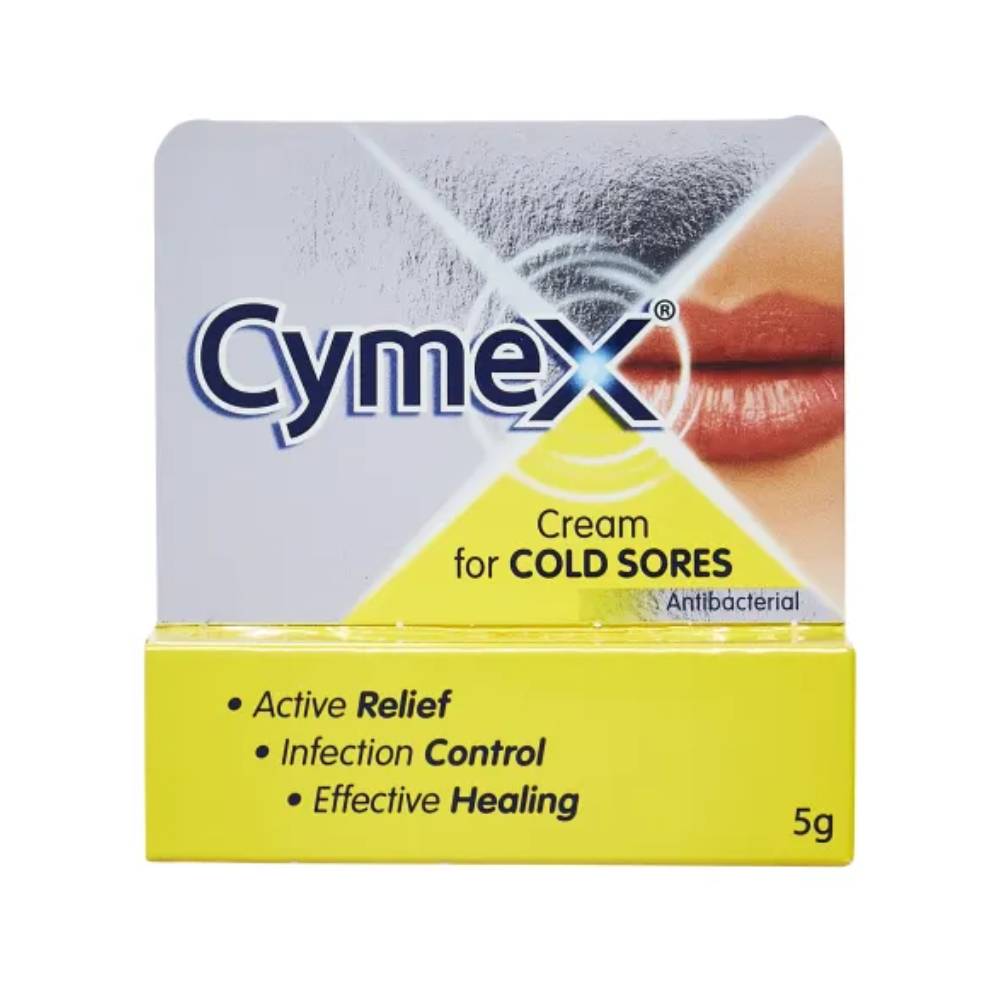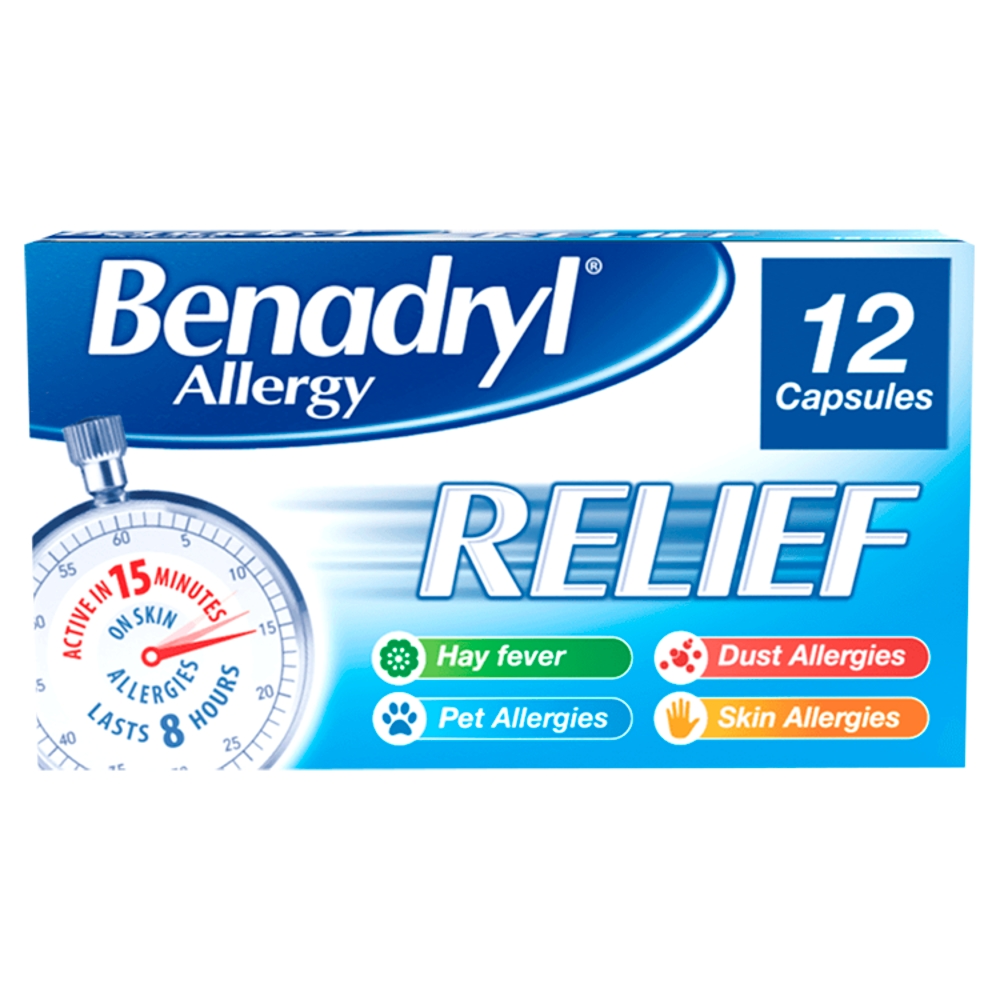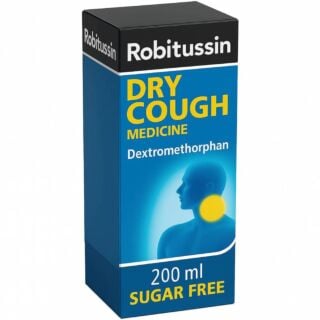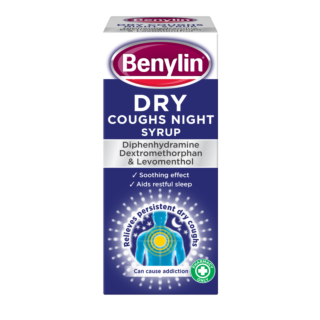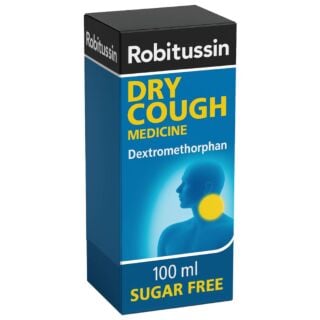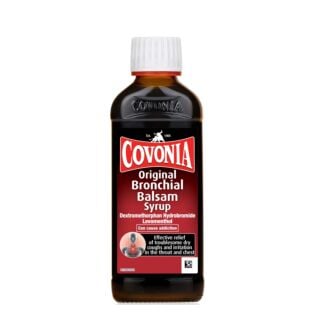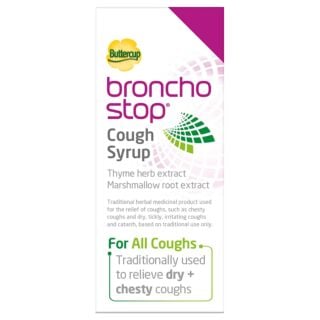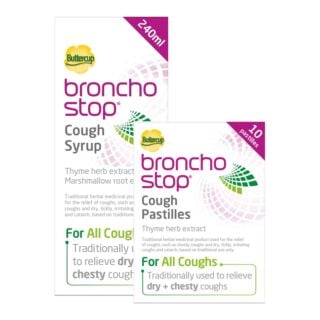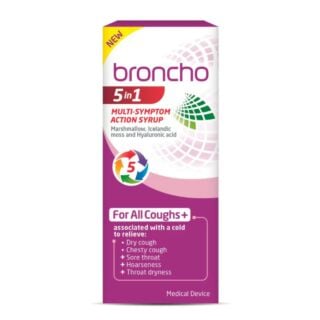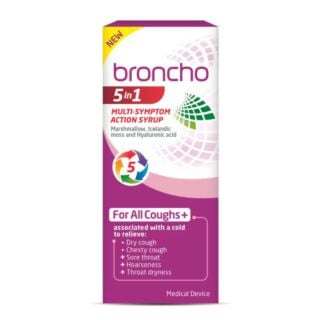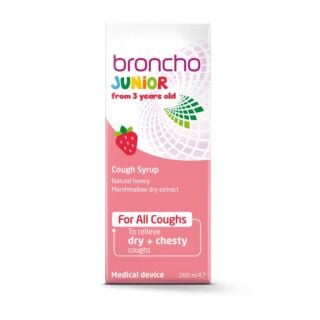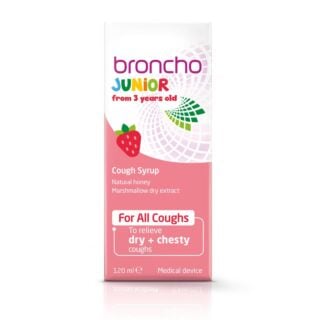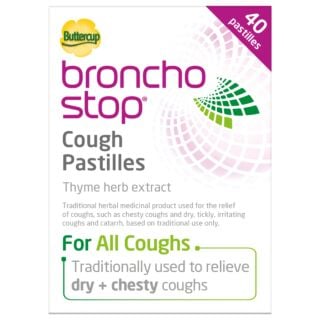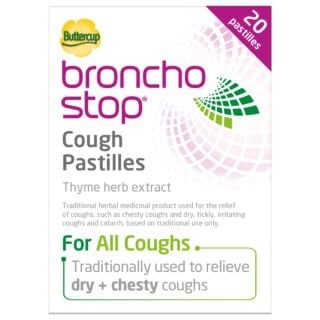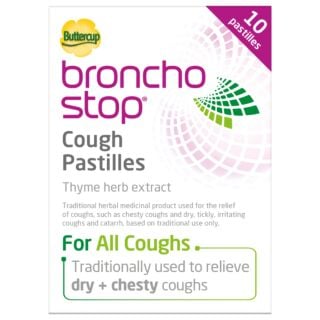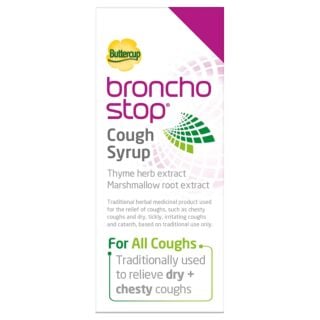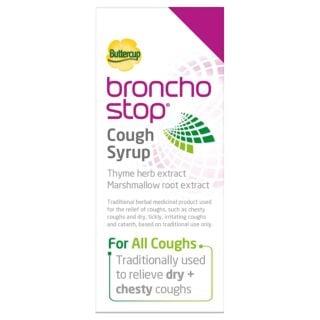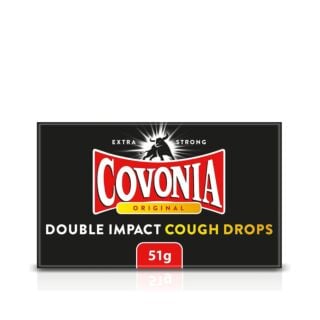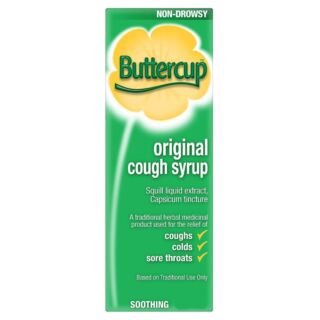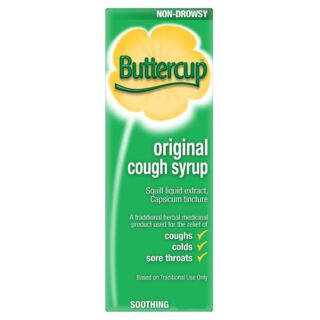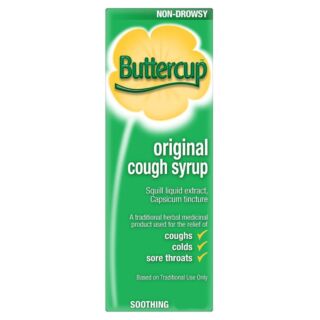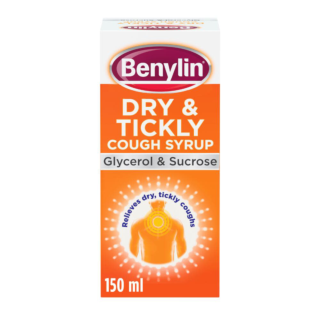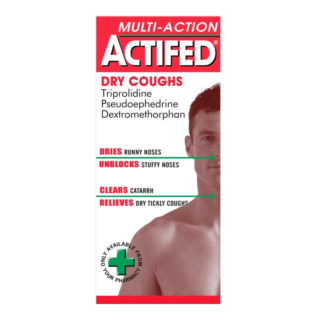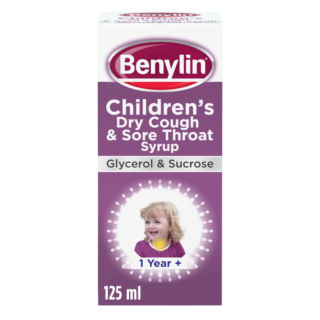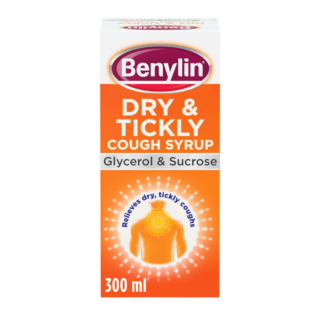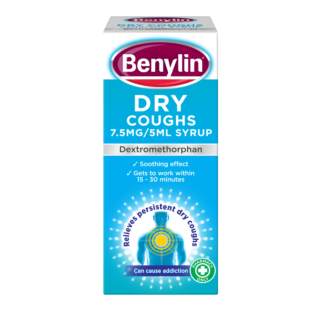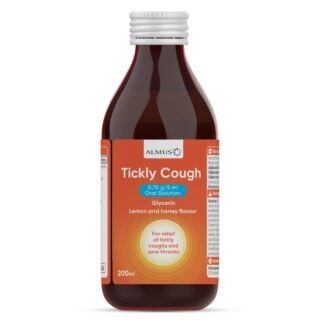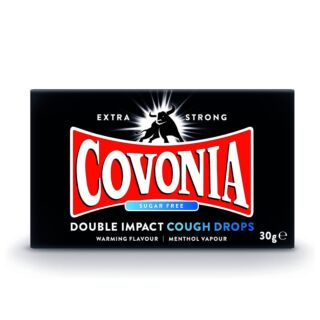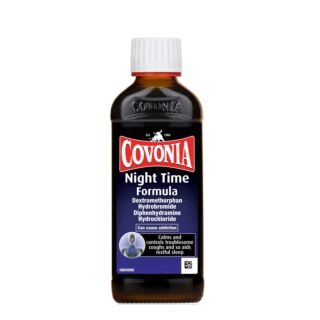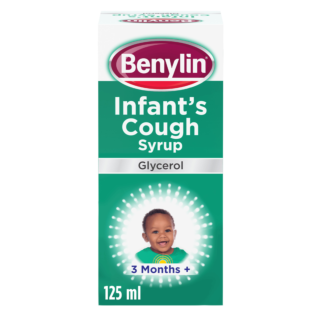Dry Cough
Most people have had a cough at some point, with 10% of the population estimated to have a cough at any one time.1 However, knowing that you’re struggling to fight a cough alongside one tenth of the population doesn’t minimise its impact on your life. … Read More See less
Even though it’s “just a cough”, a cough can have severe side effects, affect your ability to sleep (if you have a dry cough at night), and even require emergency treatment if it starts to affect your ability to breathe.2 A dry cough can also be particularly frustrating because it doesn’t produce any phlegm, so it may feel ‘unproductive’, or like you’re not helping to clear your lungs.3
Fortunately, there are a number of dry cough treatments to help provide relief. If you're looking for a way to ease your symptoms, browse our syrups, drops and medicines below.
What is a dry cough?
A cough is your body’s natural response to having phlegm and irritants (e.g. dust or smoke) in your upper airway (your throat) and lower airway (your lungs).1,2 These irritants stimulate nerves that send a message to your brain, which then tells the muscles in your chest and stomach area to push air out of your lungs and force the irritant out.4
Depending on the underlying cause and how long you’ve had it for, there are a few different types of cough:1,3
- Acute cough – lasts for two to three weeks and occurs suddenly
- Subacute cough – lasts between three to eight weeks and lingers after you’ve had an infection
- Chronic cough (or persistent dry cough) –continues for more than eight weeks
- Refractory cough – a chronic cough that doesn’t get better with treatment
A dry cough (also known as an unproductive cough) causes a tickly irritation in your airways or throat that causes you to cough without bringing up any phlegm or mucus.5 A chesty cough (also known as a productive cough), on the other hand, produces phlegm and can help you to feel like you’ve cleared your airways.2,3
You may feel like your chest is particularly tight if you have a dry cough.5 This can cause you to strain your lungs or chest muscles coughing, resulting in chest pain.5
Cause for a dry cough
A dry, tickly cough is usually caused by a virus or irritant that causes your airways to become inflamed or irritated.5 In contrast, a wet cough is usually caused by an infection that creates a lot of mucus.5
Certain conditions and factors that can inflame or irritate your airways and cause a dry cough include:5
- Allergies
- Asthma
- Bronchitis
- Colds and flu (including covid-19), during recovery
- Being exposed to chemicals or irritants
- Gerd (gastroesophageal reflux disease) or laryngopharyngeal reflux
- Side effects of certain medications (e.g. Blood pressure medications)
- Postnasal drip (upper airway cough syndrome)
- Smoking
- Vocal cord dysfunction
- Whooping cough (pertussis)
A dry cough can also become chronic, due to more serious conditions, like:
- COPD (chronic obstructive pulmonary disease)
- Heart failure
- Lung cancer
- Pneumonia
- Pulmonary embolism
- Sleep apnoea
- Tuberculosis
Less common causes of dry cough for infants
While many of the above can cause a dry cough in infants, there are some less common causes you should be aware of if your child or baby has a dry cough. These are:6,7,8
Baby barking cough (croup)
Croup causes the swelling of your child’s voice box (larynx) and windpipe (trachea). This causes the airway below their vocal cords to narrow, resulting in a distinctive sounding cough that may sound similar to the call of a seal. You should also look out for:
- A harsh, rasping noise when they breathe in
- A fever
- Difficulty breathing
Croup most commonly occurs in babies and other children younger than three years old. This is because, as children get older, their windpipes get larger, meaning any swelling is less likely to get in the way of their breathing.
The condition is usually mild but if left untreated it can become severe and even life-threatening. If you think your child has symptoms of croup, take them to the GP or call NHS 111 immediately.
Baby or child asthma
Asthma in children isn’t a different disease to that seen in adults, but children are uniquely vulnerable to certain aspects of the condition. This is because, in baby or child asthma, the lungs become easily inflamed when exposed to certain irritants, such as pollen, colds and other respiratory infections. As a result, childhood asthma is a common cause of hospitalisations, emergency department visits and missed school days.
Common childhood asthma symptoms include:
- A whistling or wheezing sound when breathing out
- Shortness of breath
- Tightness in their chest
- Frequent coughing that worsens when they are asleep, exercising, in cold air or have a cold or flu
- Difficulty sleeping
- Delayed recovery or bronchitis after a respiratory infection
- Trouble breathing, which can make it difficult to play or exercise
- Fatigue, due to poor sleep
You should make an appointment with your GP if you suspect your child has childhood asthma.
When you should see your GP for a dry cough
According to the NHS, you should speak to your GP if you have:2
- Breathlessness which is not getting better
- Had a dry cough for more than 3 weeks
- Symptoms that are not improving or are affecting your daily life
Your GP may want to conduct some further tests to find out what’s causing your cough.2 For example, they may:2,6
- Listen to your chest with a stethoscope
- Refer you for a chest x-ray
- Refer you for allergy or breathing tests
- Send a sample of your phlegm to a lab to be studied for signs of infection
- Refer you to see a specialist, though this is rare
When to seek urgent care from your GP
You should contact your GP practice for an urgent appointment if you:2
- Are experiencing more shortness of breath than usual
- Are in pain when breathing in or coughing
- Are feeling confused, dizzy, or lightheaded
- Feel sick or are being sick
- Are coughing up blood
- Have heart palpitations (feel like your heart is racing, going too slowly or skipping a beat)
- Are urinating less than usual
- Have a very high or low temperature
When to phone 999 or go to A&E
You should phone 999 or go to A&E if you experience:2
- Severe difficulty breathing
- Severe chest pain, pressure, tightness or squeezing in the middle of your chest that isn’t going away
- Pain that is spreading to your arms, back, neck and jaw
- Fatigue
- Lips or skin turning very pale, blue or grey (this is easier to see on the palms of your hands if you have brown or black skin)
As well as the above, phone 999 or go to A&E if you child is:
- Breathing fast, stopping breathing or pausing breathing
- Pulling in at their throat area or if their windpipe is more prominent
- Is limp, floppy or not responding like they normally do
- Is less than 3 months old and has a temperature of 38°c or above or 36°c or less and has not had a vaccination in the past 2 days
How to treat a dry cough
There is no miracle dry cough cure. But if you have a mild dry cough and pain in your throat that lasts for up to three weeks, you may not need any treatment.2,9 However, you should make sure you get plenty of rest and fluids.2
If you’re looking for suppressants for a dry cough to help you manage your symptoms while you recover, here are some top tips:2,5,9
- Use dry cough syrups
- Use over-the-counter dry cough medicines (although, there is no evidence to support the use of these and they should not be given to children under the age of six)
- Use cough sweets
- Treat any pain using paracetamol or ibuprofen
- Drink hot lemon and honey (not suitable for babies under one year old)
- Have a spoonful of honey
- Use a herbal medicine called pelargonium
- Use a humidifier, to put moisture into the air and ease a dry cough
- Sit in the bathroom with a hot shower going and breathe in the steam
Most cough medicines aren’t approved for children under four years old, so you should speak to a pharmacist if you’re looking for a dry cough mixture for an infant or newborn.
How to prevent a dry cough
No one wants a cough, especially because once you get one there is no miracle cure. This means the best method to avoiding a cough is prevention.
You can avoid getting a dry cough by:3,5
- Avoiding irritants and allergens that can affect your airways (e.g. Chemicals, mould and fragrances)
- Staying up to date with your influenza, COVID-19 and pneumonia vaccinations
- Quitting smoking and avoiding second-hand smoke
- Avoiding people who are ill, to prevent the spread of infections
- Identifying any allergies that are causing you to cough and avoiding irritants
- Avoiding touching your eyes, nose and mouth
- Washing your hands often with soap and water and/or using hand sanitiser
Sources
- https://cks.nice.org.uk/topics/cough/background-information/prevalence/
- https://www.nhsinform.scot/illnesses-and-conditions/lungs-and-airways/cough/
- https://my.clevelandclinic.org/health/symptoms/17755-cough
- https://www.mayoclinic.org/symptoms/cough/basics/definition/sym-20050846
- https://my.clevelandclinic.org/health/symptoms/dry-cough
- https://www.nurofen.co.uk/children/articles/types-of-coughs-in-babies-and-children/
- https://my.clevelandclinic.org/health/diseases/8277-croup
- https://www.mayoclinic.org/diseases-conditions/childhood-asthma/symptoms-causes/syc-20351507
- https://www.nhs.uk/symptoms/cough/

Free delivery when you spend over £39

100% discreet delivery for every item ordered

Fully regulated UK pharmacy
Are there any home remedies for a dry cough?
There are a couple of things you can do at home to help ease your dry cough, and they can be done at the same time as taking your cough syrup.
We recommend getting plenty of rest when you have a cough, as it’s often caused by a cold or the flu or another infection which all need some serious rest if you’re going to get over them as soon as possible.
You should also drink plenty of fluids, as this will help to keep the back of your poor irritated throat hydrated.
We’d also recommend trying a hot honey and lemon drink, which may help to soothe your throat and make that cough a little better.
Do I have a dry cough or a chesty cough?
There are two common types of cough, a dry, tickly cough and a chesty, mucus cough, and they’re pretty easy to tell apart.
If you have a dry cough you won’t produce any mucus or phlegm when you cough.
On the other hand, if you have a chesty cough you’ll bring up phlegm when you have a good coughing session.
Different types of cough need different types of cough medicine, which is why there are so many available.
Which dry cough remedy is suitable for children?
Dry cough medicines are available for children aged 3 months and over.
These cough medicines often contain an ingredient called glycerin or glycerol, which coats the back of the throat, soothing and lubricating the area and reducing your little one’s dry cough in the process.
Glycerin cough medicines are available from popular brands like Benylin, CalCough, and Tixylix, so you’ll be sure to find one that’s right for your child.
If you’re not sure which cough syrup will be suitable for your child for any reason, ask your doctor or pharmacist for some advice.

